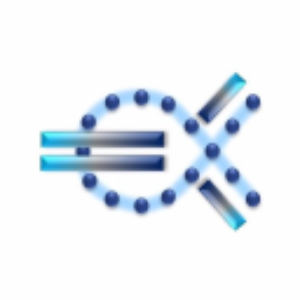Actinium Announces FDA Clearance of Iomab-ACT Targeted Conditioning IND Application for Sickle Cell Disease Patients Undergoing Bone Marrow Transplant in Collaboration with Columbia University
Rhea-AI Summary
Actinium Pharmaceuticals (NYSE AMERICAN: ATNM) announced FDA clearance for an IND application to study Iomab-ACT for targeted conditioning prior to bone marrow transplant (BMT) in sickle cell disease patients. The study, in collaboration with Columbia University, aims to evaluate Iomab-ACT's safety and potentially inform future gene therapy conditioning trials. Iomab-ACT, an Antibody Radiation Conjugate targeting CD45, could replace current non-targeted chemotherapy and total body irradiation conditioning methods, potentially reducing severe side effects and broadening access to curative cellular therapies. This initiative addresses the high unmet need among approximately 100,000 U.S. sickle cell patients annually. The study aligns with Actinium's strategy to expand Iomab-ACT's applications in transplant, cell therapy, and gene therapy conditioning, tapping into a growing market for CAR-T and gene therapies expected to reach 93,000 U.S. patients by 2030.
Positive
- FDA clearance of IND application for Iomab-ACT in sickle cell disease
- Collaboration with Columbia University for clinical trial
- Potential to broaden access to curative cellular therapies for sickle cell patients
- Iomab-ACT could replace current high-toxicity conditioning methods
- Expanding addressable market in transplant, cell therapy, and gene therapy conditioning
- Aligns with growing CAR-T and gene therapy market, expected to reach 93,000 U.S. patients by 2030
Negative
- Early-stage development, success not guaranteed
- Competitive landscape in cellular and gene therapies
News Market Reaction
On the day this news was published, ATNM gained 2.07%, reflecting a moderate positive market reaction.
Data tracked by StockTitan Argus on the day of publication.
- Sickle cell disease affects approximately 100,000 patients in the U.S. annually and is a debilitating and life-threatening condition with high unmet need
- Current conditioning with non-targeted chemotherapies provides limited access to potentially curative bone marrow transplant and recently approved gene therapies for sickle cell disease patients
- Initial trial focused on conditioning for bone marrow transplant intended to inform subsequent gene therapy conditioning study and provide broader access to cellular therapy for sickle cell patients
Dr. Mapara, stated, "Undergoing chemotherapy- or total body irradiation-based conditioning for curative allogeneic bone marrow transplant or gene therapy often brings severe side effects for patients with sickle cell disease. These toxicities include organ damage, infections, infertility, and the potential for secondary malignancies. Leveraging extensive data from CD45 ARC conditioning in allogeneic bone marrow transplants, I am thrilled to lead this pioneering study using Iomab-ACT, a non-chemotherapeutic targeted radiotherapy conditioning, for patients with sickle cell disease. This innovative approach aims to minimize toxicity while ensuring complete donor hematopoiesis engraftment. Success in this trial could revolutionize treatment, enabling the use of a low-toxicity method for the engraftment of genetically engineered autologous stem cells in SCD patients."
Sandesh Seth, Actinium's Chairman and CEO, added, "We are honored to collaborate with Dr. Mapara on this important initiative to address the significant number of patients with sickle cell disease who do not pursue or are not able to access transplant or gene therapies due to the required chemotherapy-based conditioning and its severe toxicities. Sickle cell disease represents a large and high unmet need that needs better treatment options and outcomes. This exciting program in sickle cell disease adds to our recently announced commercial CAR-T trial addressing the large patient population with blood cancers that can also benefit from broader access to cellular therapy via targeted conditioning. We look forward to further expanding Iomab-ACT's already large addressable patient opportunity in transplant, cell therapy and gene therapy conditioning."
Targeted Radiotherapy Conditioning Opportunity
The opportunity exists for better conditioning in other areas of cellular therapy, such as CAR-T as well as gene therapies. The pipeline of CAR-T and gene therapies has rapidly expanded, with the addressable patient population expected to nearly double and reach approximately 93,000 patients in the
About Actinium Pharmaceuticals, Inc.
Actinium develops targeted radiotherapies to meaningfully improve survival for people who have failed existing oncology therapies. Advanced pipeline candidates Iomab-B (pre-BLA & MAA (EU)), an induction and conditioning agent prior to bone marrow transplant, and Actimab-A (National Cancer Institute CRADA), a therapeutic agent, have demonstrated potential to extend survival outcomes for people with relapsed and refractory acute myeloid leukemia. Actinium plans to advance Iomab-B for other blood cancers and next generation conditioning candidate Iomab-ACT to improve cell and gene therapy outcomes. Actinium holds more than 230 patents and patent applications including several patents related to the manufacture of the isotope Ac-225 in a cyclotron.
For more information, please visit: https://www.actiniumpharma.com/
Forward-Looking Statements
This press release may contain projections or other "forward-looking statements" within the meaning of the "safe-harbor" provisions of the private securities litigation reform act of 1995 regarding future events or the future financial performance of the Company which the Company undertakes no obligation to update. These statements are based on management's current expectations and are subject to risks and uncertainties that may cause actual results to differ materially from the anticipated or estimated future results, including the risks and uncertainties associated with preliminary study results varying from final results, estimates of potential markets for drugs under development, clinical trials, actions by the FDA and other governmental agencies, regulatory clearances, responses to regulatory matters, the market demand for and acceptance of Actinium's products and services, performance of clinical research organizations and other risks detailed from time to time in Actinium's filings with the Securities and Exchange Commission (the "SEC"), including without limitation its most recent annual report on form 10-K, subsequent quarterly reports on Forms 10-Q and Forms 8-K, each as amended and supplemented from time to time.
Investors:
investorrelations@actiniumpharma.com
![]() View original content to download multimedia:https://www.prnewswire.com/news-releases/actinium-announces-fda-clearance-of-iomab-act-targeted-conditioning-ind-application-for-sickle-cell-disease-patients-undergoing-bone-marrow-transplant-in-collaboration-with-columbia-university-302206540.html
View original content to download multimedia:https://www.prnewswire.com/news-releases/actinium-announces-fda-clearance-of-iomab-act-targeted-conditioning-ind-application-for-sickle-cell-disease-patients-undergoing-bone-marrow-transplant-in-collaboration-with-columbia-university-302206540.html
SOURCE Actinium Pharmaceuticals, Inc.








